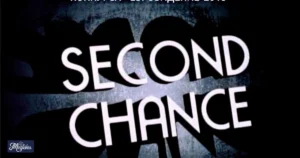Have you ever found yourself in a situation where everything seems confusing, as if you’re wandering through a maze of words without a clear path? Idioms are powerful tools that help us express those moments of confusion in a vivid and relatable way.
This blog post will dive into 35 idioms that beautifully capture the essence of confusion. You’ll find the meanings, example sentences, and explanations to ensure you never get lost in words again.
1. In a Fog
Meaning: Feeling dazed, bewildered, or confused.
Example Sentence 1: After the long meeting, I was completely in a fog, unable to focus on anything else.
Example Sentence 2: When the teacher explained the concept, I was in a fog until she provided more examples.
Explanation: This idiom paints a picture of someone lost in dense fog, symbolizing a state of mental confusion where clarity is hard to find.
2. At Sea
Meaning: Completely lost or confused, without any clear idea of what to do.
Example Sentence 1: When the new software was introduced, I felt at sea during the training session.
Example Sentence 2: The unexpected turn of events left everyone at sea, unsure of how to proceed.
Explanation: The phrase originates from the idea of being adrift in the vast ocean, far from land, symbolizing a deep sense of confusion and uncertainty.
3. All at Sixes and Sevens
Meaning: In a state of confusion or disarray.
Example Sentence 1: The office was all at sixes and sevens after the sudden announcement.
Example Sentence 2: Moving houses left the family all at sixes and sevens for weeks.
Explanation: This idiom is often used to describe situations where everything is chaotic, with no clear direction or order, representing mental or physical confusion.
4. Mixed Up
Meaning: Confused or unable to think clearly.
Example Sentence 1: I was so mixed up after the presentation that I couldn’t remember the main points.
Example Sentence 2: The instructions were so complicated that everyone got mixed up halfway through.
Explanation: This idiom suggests a state of being mentally jumbled, where thoughts are tangled and hard to sort out.
5. In a Tangle
Meaning: Confused or in a state of disorder.
Example Sentence 1: His emotions were in a tangle after hearing the unexpected news.
Example Sentence 2: The complex plot left the audience in a tangle, trying to figure out what happened.
Explanation: Just like a physical tangle, this idiom represents a mental state where everything is knotted up and difficult to untangle or understand.
6. Out of One’s Depth

Meaning: In a situation that is beyond one’s understanding or ability.
Example Sentence 1: I felt completely out of my depth during the advanced physics lecture.
Example Sentence 2: She was out of her depth in the conversation about global economics.
Explanation: This idiom conveys the feeling of being overwhelmed or lost in a situation that is too complex or unfamiliar, much like being in water that’s too deep.
7. Up in the Air
Meaning: Uncertain or unresolved, often leading to confusion.
Example Sentence 1: Our vacation plans are still up in the air because we can’t decide where to go.
Example Sentence 2: The outcome of the negotiations is up in the air, leaving everyone confused about the next steps.
Explanation: This idiom suggests that something is not yet settled or decided, leading to a state of uncertainty and confusion.
8. Going Around in Circles
Meaning: Making no progress and feeling confused or lost.
Example Sentence 1: We were going around in circles trying to solve the problem without any success.
Example Sentence 2: The debate kept going around in circles, with no clear resolution in sight.
Explanation: This idiom represents the frustration of being stuck in a loop of confusion, unable to move forward or find a solution.
Wealthy Words: Popular Idioms for Rich People and Situations
9. Up a Creek Without a Paddle
Meaning: In a difficult situation with no easy way out, leading to confusion.
Example Sentence 1: When the car broke down in the middle of nowhere, we were up a creek without a paddle.
Example Sentence 2: Forgetting the key to the office left me up a creek without a paddle on a busy workday.
Explanation: This idiom evokes the image of being stranded in a boat without a paddle, symbolizing a tough situation where confusion reigns and solutions are hard to find.
10. Out of the Loop
Meaning: Not informed or aware, leading to confusion.
Example Sentence 1: I felt out of the loop when everyone was discussing the new project that I hadn’t heard about.
Example Sentence 2: Being on vacation made me out of the loop with the latest office news.
Explanation: This idiom suggests a sense of exclusion from important information, leading to a feeling of confusion or disorientation.
11. In the Dark
Meaning: Unaware of something, leading to confusion.
Example Sentence 1: I was in the dark about the surprise party until the very last minute.
Example Sentence 2: The employees were in the dark about the company’s plans for restructuring.
Explanation: This idiom conveys the feeling of being kept uninformed, similar to being in a dark room where nothing is visible, causing confusion.
12. Lost in the Shuffle
Meaning: Overlooked or forgotten in a confusing or busy situation.
Example Sentence 1: My request for a day off got lost in the shuffle during the hectic week.
Example Sentence 2: Important details can easily be lost in the shuffle when too many things are happening at once.
Explanation: This idiom reflects the idea of something being misplaced or forgotten amid chaos, leading to confusion or neglect.
13. Out to Lunch
Meaning: Not paying attention or mentally absent, leading to confusion.
Example Sentence 1: He seemed out to lunch during the meeting, not contributing anything to the discussion.
Example Sentence 2: When she missed the key points, it was clear she was out to lunch the whole time.
Explanation: This idiom humorously suggests that someone is mentally “absent” or daydreaming, contributing to a state of confusion or lack of focus.
14. Befuddled
Meaning: Extremely confused or perplexed.
Example Sentence 1: The complex instructions left me completely befuddled.
Example Sentence 2: I was befuddled by the sudden change in plans.
Explanation: This word captures the intensity of confusion, describing a state where nothing makes sense and clarity is out of reach.
15. Mind-Boggled
Meaning: Overwhelmed with confusion or amazement.
Example Sentence 1: The complex problem left everyone mind-boggled.
Example Sentence 2: I was mind-boggled by the intricate details of the proposal.
Explanation: This idiom highlights the overwhelming nature of certain situations that leave you feeling mentally overloaded and confused.
16. Scratching One’s Head
Meaning: To be confused and unable to understand something.
Example Sentence 1: The math problem had me scratching my head for hours.
Example Sentence 2: She was scratching her head over the strange email she received.
Explanation: This idiom represents the physical gesture of confusion, symbolizing the struggle to comprehend something puzzling.
17. Flummoxed
Meaning: Completely confused and bewildered.
Example Sentence 1: The complicated puzzle left everyone flummoxed.
Example Sentence 2: I was flummoxed by the unexpected turn of events.
Explanation: This idiom conveys a deep sense of confusion, where understanding seems almost impossible.
18. Baffled
Meaning: Totally confused or puzzled.
Example Sentence 1: The sudden change in plans left me baffled.
Example Sentence 2: The intricate details of the story had everyone baffled.
Explanation: “Baffled” describes a state of being unable to grasp something, leaving you puzzled and unsure.
19. Up in Arms
Meaning: Confused and angry about something.
Example Sentence 1: The new policy had the employees up in arms, not knowing how it would affect them.
Example Sentence 2: The decision left the community up in arms, feeling both confused and upset.
Explanation: This idiom combines confusion with a sense of frustration or anger, reflecting a situation where people don’t understand and are upset.
20. A Puzzlement
Meaning: A state of confusion or bewilderment.
Example Sentence 1: The plot of the movie was a complete puzzlement.
Example Sentence 2: The strange behavior of the cat was a puzzlement to everyone.
Explanation: This idiom captures the essence of something that is mysterious or hard to figure out, leaving people confused.
21. Out of Whack
Meaning: Not functioning properly, leading to confusion.
Example Sentence 1: The schedule is out of whack, and nobody knows when the meeting is.
Example Sentence 2: My computer has been out of whack all day, confusing me with strange errors.
Explanation: When something is “out of whack,” it’s not working as it should, causing confusion and disruption.
22. In a Quandary
Meaning: In a state of uncertainty or confusion about what to do.
Example Sentence 1: I was in a quandary over whether to accept the job offer.
Example Sentence 2: The conflicting advice left her in a quandary.
Explanation: This idiom suggests a dilemma where making a decision is difficult due to confusion or uncertainty.
23. Running in Circles
Meaning: Engaging in repetitive or futile activities, leading to confusion.
Example Sentence 1: We were running in circles trying to solve the problem without getting anywhere.
Example Sentence 2: The discussion kept running in circles, leaving everyone confused.
Explanation: This idiom reflects the frustration of being stuck in a loop, where actions are unproductive and confusion persists.
24. On the Wrong Track
Meaning: Following a mistaken course of action, leading to confusion.
Example Sentence 1: We realized we were on the wrong track when the results didn’t match our expectations.
Example Sentence 2: The team was on the wrong track with their initial approach to the project.
Explanation: Being “on the wrong track” suggests that confusion arises from pursuing an incorrect or unproductive path.
25. A Ball of Confusion
Meaning: A state of extreme confusion or disorder.
Example Sentence 1: The new policy created a ball of confusion among the employees.
Example Sentence 2: The debate turned into a ball of confusion with everyone talking at once.
Explanation: This idiom represents a chaotic situation where everything is jumbled, making it difficult to find clarity or order.
26. Out of One’s Mind
Meaning: Extremely confused or mentally disturbed.
Example Sentence 1: He seemed out of his mind with worry, unable to think clearly.
Example Sentence 2: The stress of the situation left her out of her mind with confusion.
Explanation: This idiom conveys a state where confusion has overtaken a person’s ability to think rationally.
27. Spinning Wheels
Meaning: Making no progress despite efforts, leading to frustration and confusion.
Example Sentence 1: We were spinning our wheels trying to find a solution, but nothing worked.
Example Sentence 2: The project felt like it was spinning wheels, with everyone confused about the next steps.
Explanation: This idiom reflects the frustration of being stuck in a situation where no progress is made, only adding to the confusion.
28. All Over the Place

Meaning: Disorganized or scattered, leading to confusion.
Example Sentence 1: The presentation was all over the place, leaving the audience confused.
Example Sentence 2: Her thoughts were all over the place after hearing the news.
Explanation: This idiom suggests a lack of focus or order, where everything is scattered and nothing is clear, causing confusion.
29. Out of Kilter
Meaning: Not functioning as expected, leading to confusion.
Example Sentence 1: The machinery was out of kilter, causing delays and confusion on the factory floor.
Example Sentence 2: My sleep schedule is out of kilter, making me feel confused and tired.
Explanation: When something is “out of kilter,” it’s not aligned or working properly, leading to a state of confusion or disorder.
30. In a Dither
Meaning: In a state of nervous or confused agitation.
Example Sentence 1: She was in a dither before the big presentation, unsure of what to say.
Example Sentence 2: The unexpected news left him in a dither, not knowing what to do next.
Explanation: This idiom captures the anxiety and confusion that come with being unsure or unprepared.
31. Beside Oneself
Meaning: Extremely agitated and confused.
Example Sentence 1: He was beside himself with worry after hearing the bad news.
Example Sentence 2: She was beside herself with confusion when the plan fell apart.
Explanation: This idiom describes a state of emotional turmoil where confusion takes over, leaving a person distraught.
32. At a Loss
Meaning: Unable to think of what to do or say due to confusion.
Example Sentence 1: I was completely at a loss for words when I heard the shocking news.
Example Sentence 2: He was at a loss on how to respond to the unexpected question.
Explanation: This idiom reflects the helplessness and confusion that come when one cannot find the right words or actions in a situation.
33. In a Spin
Meaning: In a state of confusion or excitement.
Example Sentence 1: The sudden changes left everyone in a spin, trying to figure out what was happening.
Example Sentence 2: She was in a spin after receiving the surprising news.
Explanation: This idiom suggests a whirlwind of emotions or thoughts, where confusion reigns due to overwhelming circumstances.
34. Mind in a Whirlpool
Meaning: Overwhelmed by swirling, confusing thoughts.
Example Sentence 1: The rapid developments left my mind in a whirlpool, unable to process everything.
Example Sentence 2: He felt like his mind was in a whirlpool with all the conflicting information.
Explanation: This idiom illustrates the sensation of thoughts spinning out of control, creating a sense of mental confusion and overwhelm.
35. A Case of the Yips
Meaning: A state of nervous confusion, especially in sports or performance situations.
Example Sentence 1: The golfer got a case of the yips and couldn’t make a single putt.
Example Sentence 2: The actor had a case of the yips on stage, forgetting his lines in confusion.
Explanation: This idiom is often used in sports to describe a sudden loss of skills due to nervousness, leading to confusion and underperformance.
Answer to key question
1. What does the idiom “In a Fog” mean?
The idiom “In a Fog” means feeling dazed, bewildered, or confused, much like being lost in dense fog with no clear direction.
2. How can idioms help express confusion?
Idioms provide a colorful and relatable way to express complex emotions, such as confusion, by using familiar scenarios and imagery.
3. Why is “At Sea” used to describe confusion?
“At Sea” is used to describe confusion because it evokes the image of being lost in a vast ocean without clear direction, symbolizing uncertainty.
4. How does “Running in Circles” reflect confusion?
“Running in Circles” reflects confusion by illustrating the frustration of repeating the same actions without making progress, leading to a sense of being stuck.
5. What is the origin of “Up a Creek Without a Paddle”?
“Up a Creek Without a Paddle” originates from the idea of being stranded in a boat without a means to navigate, symbolizing a tough, confusing situation with no easy way out.
6. How can understanding idioms improve communication?
Understanding idioms can improve communication by helping you convey emotions and thoughts more vividly, making your language richer and more engaging.
Conclusion
Getting lost in words can be a common experience, but understanding these idioms for confusion can help you articulate your feelings more clearly. By using these expressions, you can better navigate through moments of uncertainty and confusion, adding depth and color to your communication.
So the next time you’re feeling in a fog or at sea, you’ll have the right idiom to express exactly how you feel.

Hi, I’m Ethan Matthews: I make English easy with my clear and simple teaching style. I love helping learners feel confident in every lesson.










